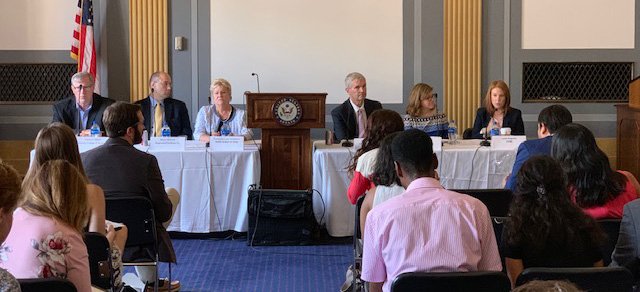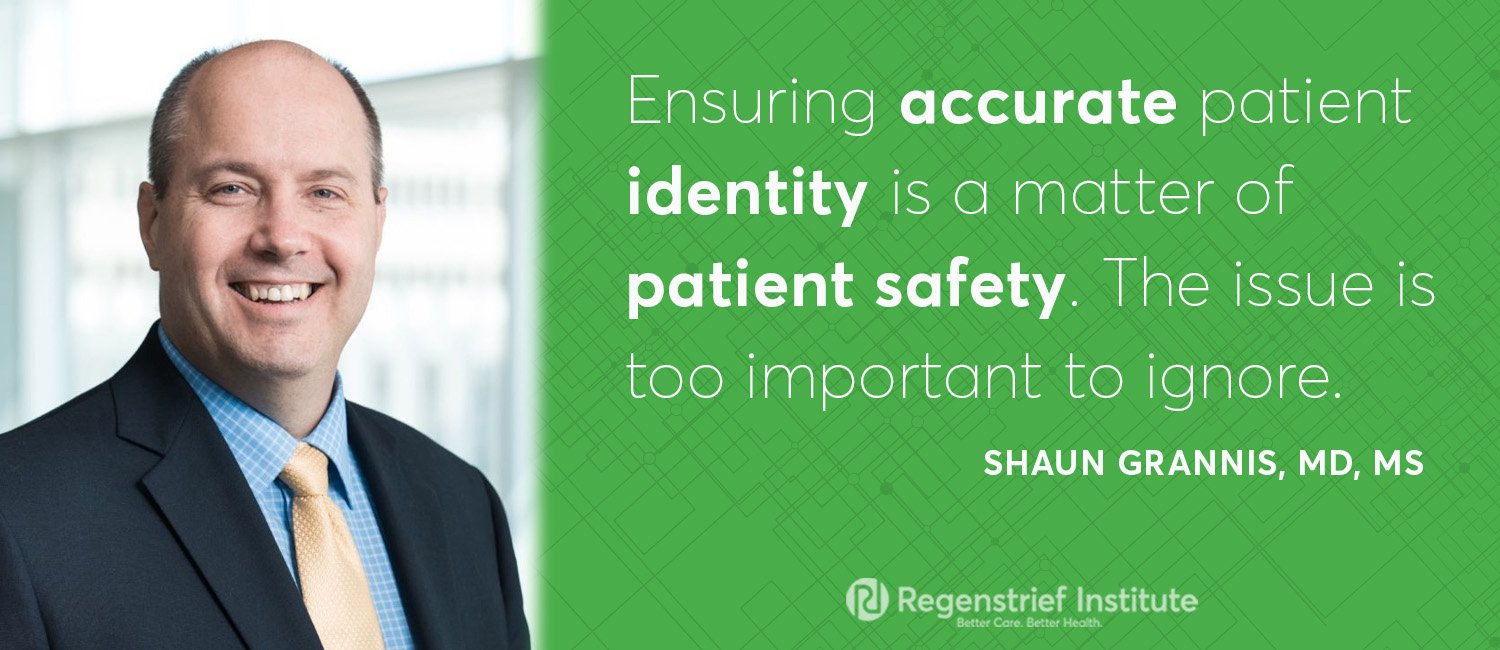‘Issue is too important to ignore,’ says Dr. Shaun Grannis on need for data standardization
Regenstrief research scientist Shaun Grannis, M.D., traveled to Washington, D.C. to educate members of Congress about patient medical record matching. Dr. Grannis, director of the Regenstrief Institute Center for Biomedical Informatics and an internationally recognized expert in informatics and data analytics, spoke to senators and their staffs on July 22.
Dr. Grannis was a key member of a contingent of research scientists who are national healthcare information technology leaders.
Accurate and complete patient matching is an important component of patient safety. Every time someone goes to a healthcare provider, an electronic health record is generated. But because of variations in record keeping, it can be difficult to match all of those records. The issue can lead to gaps in information on a person’s health, or even inaccurate information if two separate people’s records are mistakenly linked.
Leaders in the health information technology industry have urged action, but so far, the federal government has not invested in research to identify a solution.
“Congress should allocate resources to address the gap in guidance related to patient records,” said Dr. Grannis. “Ensuring accurate patient identity is a matter of patient safety. The issue is too important to ignore.”
Last month, the U.S. House of Representatives repealed a nearly two-decade ban on the use of federal funds to adopt a nationwide unique patient identifier as part of the FY2020 Labor, Health and Human Services, and Education and Related Agencies (Labor-HHS) appropriations bills. Dr. Grannis and other biomedical informatics experts spoke to U.S. Senate staff and policy makers to educate them on the issue and the importance of creating a consistent approach to identifying patients.
“There has been a lot of time and money invested in standardizing and developing health information exchange policy. Creating standards for patient matching is the next step to fully utilize the capabilities of health information exchanges and electronic health records,” continued Dr. Grannis.
The funding from the government would be used to study the issue and develop policy to enable better record matching.
Dr. Grannis accompanied experts from the College of Healthcare Information Management Executives, the American Health Information Management Association, the American Medical Informatics Association, and the College of Surgeons.
In addition to his position at Regenstrief, Dr. Grannis is a professor of family medicine and the Clem McDonald Professor of Biomedical Informatics at the Indiana University School of Medicine.












